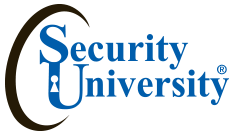
SU Foundation Advisory Board – and mission,
The SUF Advisory Board Actively engages in solutions to challenges facing cybersecurity education. SUF plays a crucial and important role: providing unfettered, objective advice to Security University leadership about its strategic plans, vision, research, diversity and educational cybersecurity programs and priorities.
Cybersecurity workforce demand continues to outpace supply despite steady growth in the workforce. From 2018 to 2020, the number of employees in cybersecurity roles grew 29 percent, from 715,715 to 922,720, while unfilled positions grew by 62 percent “says David Forscey, Managing Director, Aspen Cybersecurity Group. SUF Board addresses many of the most pressing cybersecurity issues facing business and government- focused around cyber technology, workforce development, cyber policy, and higher education for the non-traditional student.
Mission, SU Foundation as a non-profit provides solutions that educate, train, mentor, apprentice and provide professional development in cybersecurity. Since 1999 the SU Foundation has processed free cyber education to over 25,000 IT professionals who successfully crossed the chasm into high-wage in-demand cybersecurity roles. For 22 years SUF leveraged over $8,000,000.00 in VA/ MD/ DC WIOA programs to break down barriers to education while increasing performance based cyber skills training that qualifies and validates cyber skills necessary to enter or advance in the field of cybersecurity.
SUF approach to cyber talent and how we upskill our workforce has successfully helped over 25,000 adults enter and advance their careers in the cyber workforce. America can upskill 200 million working age adults – less than 0.2 percent of our workforce – to fill 500,000 open cybersecurity roles and take advantage of this enormous talent pool.
An organization is only as good as its cyber awareness culture—cyber is every manager’s and employee’s responsibility. By understanding the perceptual, technical, and psychological processes that impact the ways people attack networks and individuals we can help organizations be more secure places to work.
SUF Board meeting twice a year. The SU Foundation and the board is comprised of key players in the cybersecurity field. Each member serves on the board for a (renewable) term of two years. The President of the SUF Board is selected by the President of SU.
Advisory Board Members include – SU’s Executive Director of Strategic SU Q/ISP Programs and Business Initiatives and – the Executive Director of SU Professional Certifications and Business Initiatives Walter Chekala, Ed Dir NOVA ISSA CEH, CRISC, CSM, FITSP-O, ITIL® v3, PMI-RMP, PMP, and retired and current CISO’s of Citizens Bank, and Raytheon.
The SUF Board works with initiatives that align the NICE Cybersecurity Framework, developing cyber apprenticeships and ambassador inclusion programs, Cybersecurity Competency Report Validation Scheme and SUT's 5 Qualified hands-on performance based professional workforce certifications. Since 1999 we advocate qualified cybersecurity skills with equal access to cybersecurity education for all no matter your age, gender and reflects the diversity of America.
The board identifies opportunities for SUF to develop cybersecurity initiatives that advance our nation’s cybersecurity readiness for small, medium and large business. Our SUF Board develops current SU cybersecurity activities and recommends how to integrate SUF efforts with other thought leaders on the topic while also identifying gaps in the cybersecurity ecosystem that SU's 5 World Class Qualified Hands-on Cyber Security Training Programs and Certifications and SUT's Qualified Mastery Certification eexam would fill.
Each SU student strives to master upon completion of a course or program performance based mastery skills and outcomes focus on the knowledge, skills, abilities, behaviors and actions that lead to high wage, in-demand cybersecurity job roles and sustainable long-term cybersecurity career employment that increases quality of life.
Since 1999, SU defines their cybersecurity education programs as "organized educational programs offering a sequence of courses which are directly related to the preparation of individuals in paid or unpaid employment in cybersecurity.”
The first of its kind, SU Cybersecurity Competency Report Validation Scheme shows student's capacity, demonstrated throughout their cyber competency report, to validate their knowledge, skills, abilities, behaviors and actions required to execute work-related cybersecurity activities and the practicums of performance based cyber mastery performance. Each student is assessed to achieve mastery level competency. Each transcript combined with the Cybersecurity Competency Report and Validation provides employers and peers a factual representation that measures their mastery learning outcomes.
The successful mastery of skills (commonly referred to as a “competency-based") program is the only performance based CyberSecurity program in the world designed to prepare today and tomorrow's cybersecurity warriors with validated skills for 38 cybersecurity job roles. SU mastery learning outcomes align to the NICE Cybersecurity Framework detailed in the SU NICE Cybersecurity Framework Mapping Compendium, and are measured solely on the content-specific mastery criteria laid out in the Cyber Security Certificate Program of Mastery Standards of Progress scoring rubric.
While mastery learning outcomes data and course success are critical in their Cyber Security Certificate Programs of Mastery, each provides important insight into a student's performance and ability to skillfully engage in work-related cybersecurity activities. And under 38 U.S. Code § 3687 Apprenticeship training, SU faculty assess each student's mastery of course-level learning outcomes to achieve such mastery level competency, mentor success and cyber career advancement.
There is no question the SU Cybersecurity Certificate Programs of Mastery upon competition, deliver the most sought after learning outcomes that focus on the knowledge, skills, abilities, behaviors and actions a cybersecurity student strives to master upon completion of a course or program.



